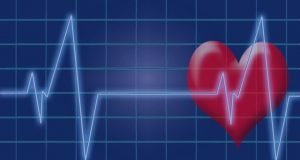Our digestive system is home to many different types of bacteria. The majority of these are probiotics, meaning ‘for/promoting life,’ and are beneficial to our system and essential to maintaining our gut health. These bacteria help to neutralise toxins, inhibit the overgrowth of yeast and harmful bacteria and boost the immune system. In addition, probiotics stimulate digestion, aid the body in absorbing nutrients and producing Vitamins B and K, as well as help to ensure that the cells in the digestive system are replicating healthily.
When to take Probiotics
There are several questions that are asked which refer to the ideal way to take these supplements. These include: what is the best time of day to take probiotics? and should they be taken with a meal or on their own? These questions arise from the possibility of the stomach’s high acid content destroying many of he bacteria before they can make it to the intestines. Probiotics need a low acid environment to enable their survival and attachment to the intestinal walls.
Some experts advise taking probiotics first thing in the morning, or last thing at night. The stomach’s Ph levels are their lowest at these times, because of the decrease in digestive activity when the body is resting. Others recommend taking probiotic supplements with, or at the end of, a meal as the food content in the stomach can help to protect the live cultures. Many high quality probiotics are also made to withstand the acid in the stomach.
It is not recommended to take probiotics with hot beverages, or food, as the heat can damage the live cultures, although something hot can be consumed immediately after taking them with a cold drink. Taking probiotics with acidic foods should also be avoided, as this increases the acidity of the stomach. Probiotics can be taken alongside other supplements or medications, however, when on antibiotics it is advisable to take them at different times during the day.
When beginning to take the supplement, there are a few people that may experience gas, bloating or diarrhoea for a short period. As a result, they may prefer to take them at night. These side effects normally disappear within a week, as the system begins to rebalance.
The Overgrowth of ‘Bad’ Bacteria
Of the many strains of bacteria in the gut, about 15% can be harmful. When the ‘good’ bacteria levels are ideal, these pathogens remain in small quantities, and are unable to cause us harm. Whenever an overgrowth occurs, however, there can be damaging results. Modern lifestyles have caused a bacterial imbalance in the gut of a large part of the population, and this results in intestinal and digestive problems. Some symptoms associated with this overgrowth are: diarrhoea, excessive gas, bloating, lactose intolerance, colds, strep throat, vaginal yeast infections, cancer and many others.
Antibiotics – The Dangers Associated with Killing Bacteria
Antibiotics are often prescribed for bacterial infections, and many people have even begun using them as preventative measures. In addition, they are transferred to our systems from animals whenever we consume their flesh. Most meat, that is not certified organic, is taken from animals that are given high doses of antibiotics to prevent diseases in the overcrowded, unhygienic environments that they are kept in.
Antibiotics work by blocking vital processes in bacteria, which either kill them or stop them from multiplying. The medication is unable to differentiate between beneficial bacterial and pathogens, however, and works to eliminate all of them. This significantly reduces the amount of good bacteria in our gut, causing a disruption in the body’s delicate ecosystem. This bacterial imbalance then results in the multiplication of yeast inside our digestive system, leading to a condition called ‘leaky gut.’
Healthy small intestines transport toxins and undigested food safely through the body. Once the walls of the digestive tract become leaky, toxins, microbes and foreign bodies will pass through them and enter our blood stream. The immune system begins to attack these ‘invaders,’ and the body goes into overdrive to get well again. Prolonged and unnecessary antibiotic use then causes the immune system, the liver and the lymphatic system to become overworked, and the system becomes unable to differentiate between healthy cells and foreign bodies. The result of this is autoimmune disease.
How Do Probiotics Work?
The most common type of bacteria used in probiotics are species of Lactobacillus and Bifidobacterium. These cultures are usually freeze dried but remain alive. Once consumed, they warm up and become fully active. They then begin to multiply and restore a balance, in the digestive system. This consists of the stomach and the intestines, and probiotics are most effective when they reach and settle in the intestines as this is where a large part of our digestion takes place. Some probiotic supplements work by introducing bacteria directly to our system, while others are designed to boost the probiotics that are found in food.
Why Probiotics are Necessary for our System
The gut is often referred to as the body’s second brain, because it is responsible for many other functions in addition to digestion. This means that an unhealthy gut causes other areas of the body to breakdown. Probiotics are often recommended to help restore gut health, and many people take them in the form of a daily supplement. The live bacteria strains found in these help to repopulate and restore the bacterial balance in the gut and intestines.
When taking a probiotic supplement, it is recommended to take a highly concentrated multi-strain one to ensure that the bacteria in the gut are diverse. Supplements can be taken in tablet or capsule form, or be used as a powder sprinkled over food. Each daily dose of probiotics should provide between 5 and 10 billion colony forming units. Fermented foods, and yoghurt, are also good sources of bacterial replenishment, even though it is harder to regulate the amount of probiotics consumed.
References:
http://www.yakult.co.uk/the-digestive-system/gut-bacteria-science
http://www.amymyersmd.com/2016/11/antibiotics-wreak-havoc-gut/
http://www.health.harvard.edu/staying-healthy/should-you-take-probiotics
http://www.health.harvard.edu/staying-healthy/should-you-take-probiotics
http://www.thehealthyhomeeconomist.com/how-to-take-probiotics/






